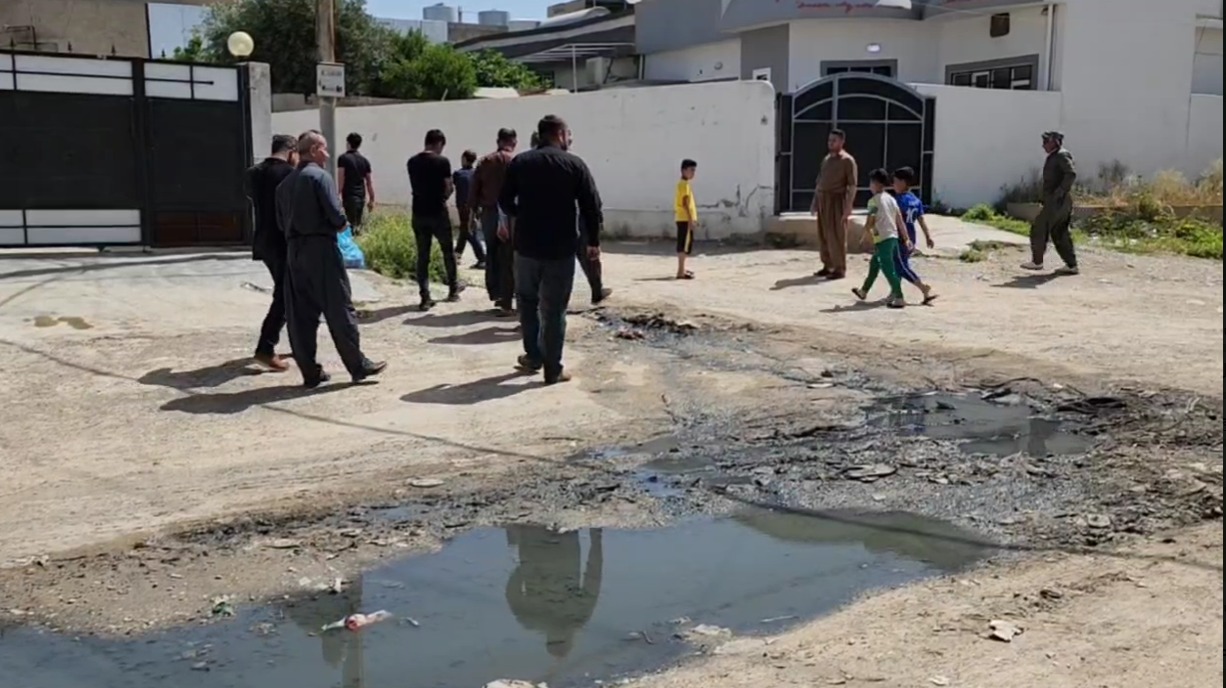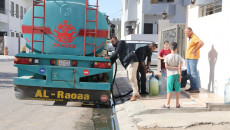The director of the Kirkuk Municipality, called on the residents of the Panja Ali neighborhood to visit the municipality to submit their requests, noting that the municipality “plans to pave and cover all the neighborhood’s alleys with concrete.”
The statement made by Ahmed Omar to (KirkukNow) came after a gathering organized by residents of the Panja Ali neighborhood today, Thursday, April 25, in protest against the presence of “discrimination” in the neighborhood’s alleys in the paving project.
A resident of the neighborhood told KirkukNow, “Our alley was not completely paved with concrete. Before completing the paving, they left our alley and went to pave other alleys... There should be no discrimination, especially since our alley leads to a school, so it is very necessary.”
A woman who lives in the same neighborhood said, “The main alleys have been neglected and not paved. In the winter, they turn into mud and it is difficult for vehicles and passers-by to pass. What is our fault?”
The neighborhood residents' protest came after that Kirkuk municipality decided to pave a section of the neighborhood's alleys with concrete, ignoring the other section.
Kirkuk exports millions of crude oil barrels a month generating hundreds of millions dollars in revenues for the national budget yet, alike the rest of the country, the public services of power, water, health, education, and sewage are limited due to years of war and corruption.
According to statistics from Kirkuk state departments, the greenness rate in the city does not exceed % although in 2017 the rate was close to 4%, while the international standard for green areas is above 15%.
Garbage collection alike other public services is poor in Kirkuk. It used to be a free of service but currently the government charges each house $2 a month. People protest irregular garbage collection despite imposing fees.
The oil-rich city of Kirkuk, Iraq's second-largest oil reserve, is ethnically a mixed province of 1.7 million Arabs, Kurds, and Turkmen. It has long been the center of disputes between Baghdad and the semi-autonomous Kurdistan Regional Government KRG.
Video: Protests by a section of the residents of the Panja Ali neighborhood
The municipal director told KirkukNow, "I am not aware of the protest, but any resident of Panja Ali who has a request can visit us in the municipality so that we can follow up on their problems and address them gradually. I want to confirm that we will pave all the neighborhood's alleys."
Regarding the reasons for stopping the paving work in Panja Ali, Ahmed Omar said, “For two reasons, the first is that the budget has been stopped, and the second is that the sewerage department did not complete its work in most of the alleys, so we had to stop, because the alley cannot be paved before the sewerage network is completed.”
Panja Ali is one of the neighborhoods built in Kirkuk after the fall of the Baath regime in 2003, and most of its residents are Kurdish families who were deported during the regime’s rule to the governorates of Erbil and Sulaymaniyah.
The protests come as official documents obtained by KirkukNow indicate that the Kirkuk municipality allocated in March 2022, with the signature of the former director (Faridoun Adel), an amount of 250 million Iraqi dinars (USD170,000) to pave the alleys of Panja Ali, but the projects are currently on hold.






